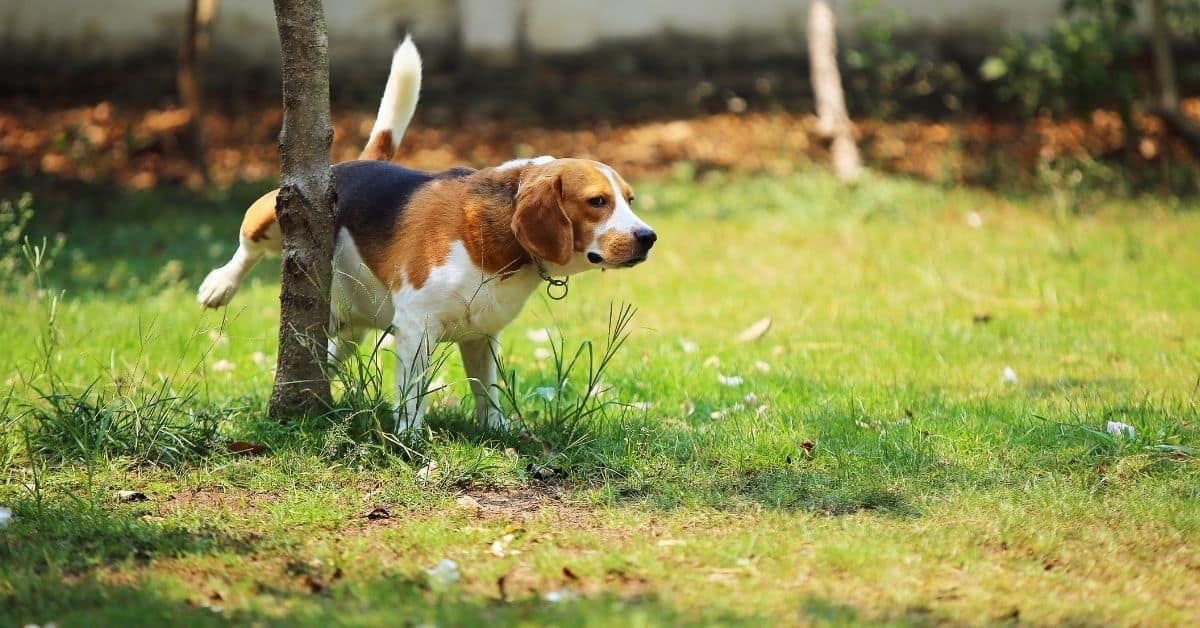Vets recommend allowing dogs to pee at least every 6-8 hours (3-4 times per day), though some can go for 10-12 hours.
Dogs under the age of 8 months can usually hold their pee for one hour for every month of age.
Many factors influence a dog’s peeing habits, but there are ways to keep your dog on track.
The 6-8 hour rule is merely a suggestion.
Some dogs can easily hold it for 8 hours, whereas others will feel more at ease going out to pee more frequently.
Consider your dog and consider some of the factors that influence how long your dog can hold his pee.
As you know now the answer to the question “how long can dogs hold their pee”, continue reading to get more information.
The Factors Which Depend On
Age, sex, body size, and general health all impact the answer to the question.
The average adult dog should be allowed to potty at least three to five times daily or once every eight hours.
Dogs can hold their pee for up to 10 to 12 hours, if necessary.
Dogs can contain their pee for an average of 8 to 10 hours while sleeping.
All dogs should be permitted to go outside after a meal or a drink and after waking up and playing.
Age
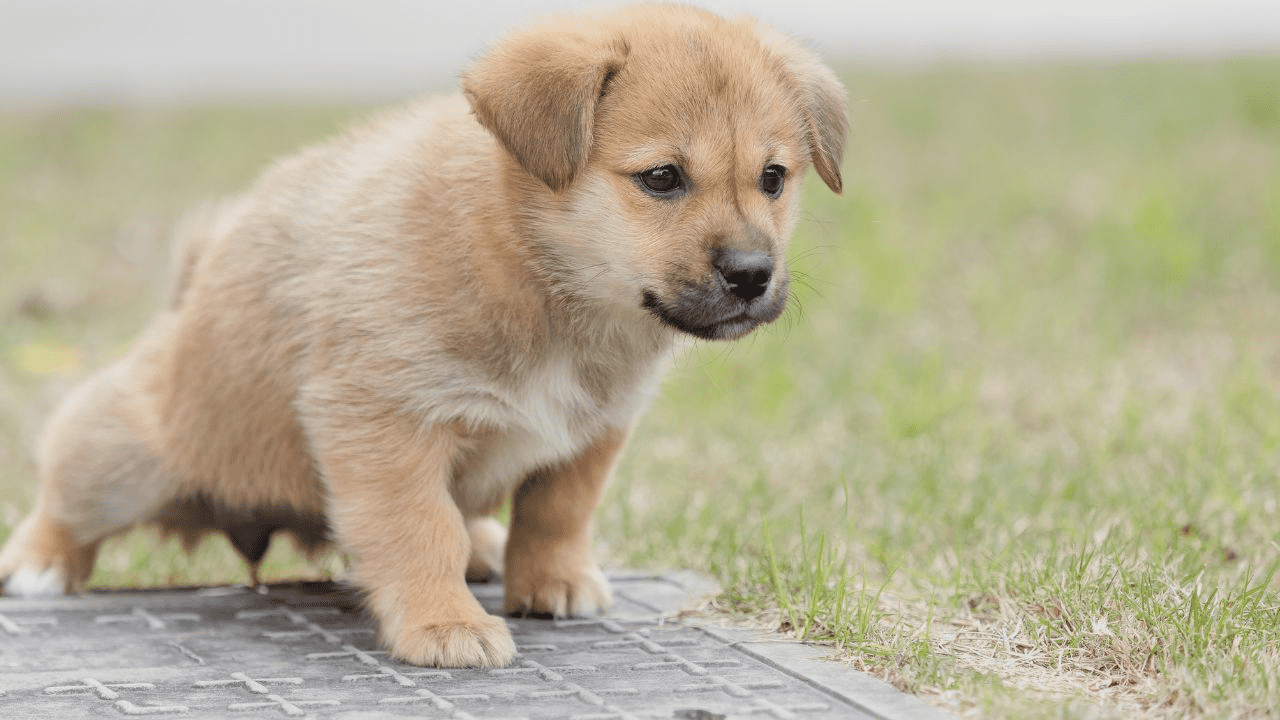
One of the primary factors of a dog’s capacity to hold it or not is its age.
As you probably already know, puppies are less able to hold their pee.
Puppies are still learning to listen to their bodies and understand when they need to move because of a tingling sensation.
And once they do, it will take them a long time to learn how to control the muscles used to hold in their urination.
Many pet parents struggle to educate their pups and young dogs on how to hold it in because it can be uncomfortable to learn to do so.
Even some adult dogs don’t know how to hold their pee and need to be taught.
Up until eight months, you can generally anticipate that a dog will be able to retain its urine for around an hour each month age.
Size
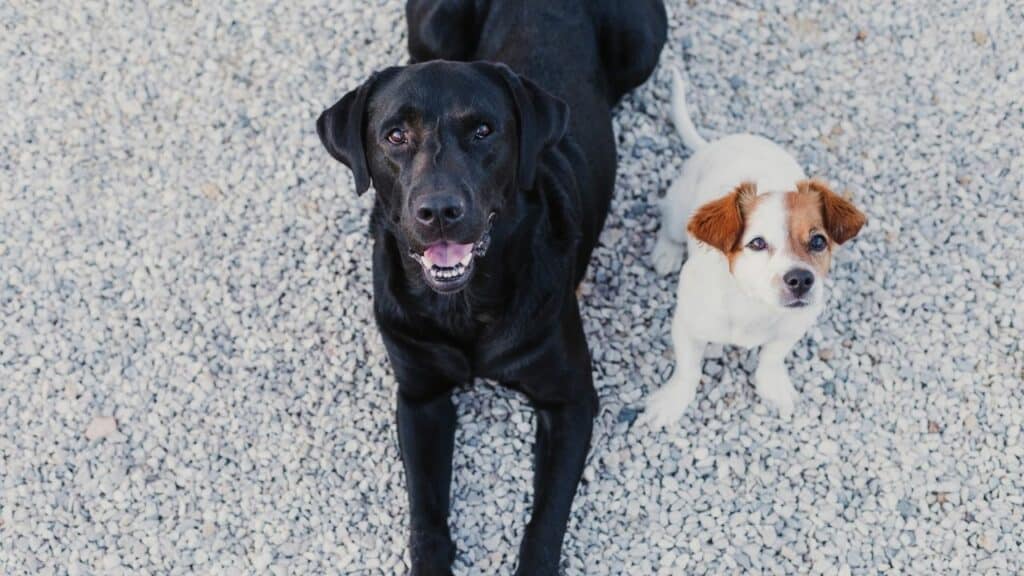
A dog must urinate daily between 10 and 20 ml per pound of body weight.
Accordingly, a 6-pound dog will urinate around half a cup per day, unlike a 60-pound dog, who will urinate about 5 cups per day.
The volume that a dog’s bladder can hold is difficult to predict.
However, smaller dogs tend to have smaller bladders than larger breeds of their overall body size.
This implies that they will urinate more frequently than their larger counterparts since their smaller bladders will fill up more quickly.
Again, this is only a general rule of thumb, and a dog’s temperament and potty training will probably impact this issue more than its size.
Health
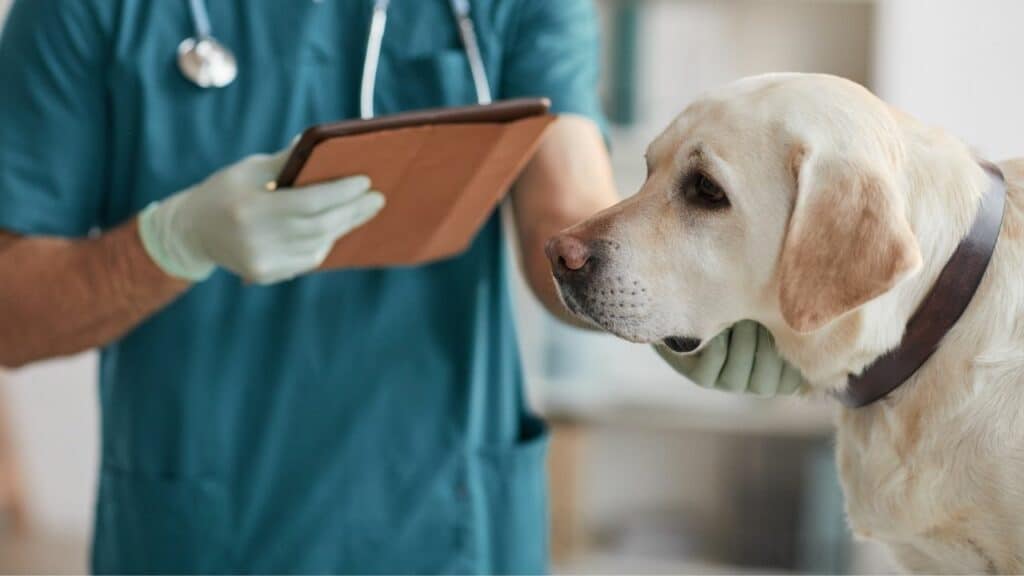
It may be more challenging for your dog to control its bladders if they are under any extra stress due to an underlying or recent health issue.
Some dogs may also have a persistent pee smell due to a health issue.
Infections of the urinary tract are usually to blame, particularly in female dogs.
Bladder and urinary stones are more severe but also quite frequent problems.
These stones not only cause a great deal of discomfort and risk but also take up space in your dog’s abdomen, restricting its ability to expand its bladders.
Also, keep in mind that some prescription drugs cause more frequent urination.
On the other hand, some medications may make your dog urinate less regularly than usual.
Common health issues that affect a dog’s urination schedule include:
Muscle weakening
Inflammation
Mobility issues
Any ailments affecting their kidney or liver
Urinary tract infection
Bladder/kidney stones
Urinary cancer
Incontinence
You will find many people willing to engage in crazy speculation about what might be wrong with your dog on the internet.
But trying to diagnose the problem yourself will only waste time and can be better spent having your vet heal your sick pet.
Diet
Of course, a dog’s water intake will impact how often they need to urinate.
When given a chance on a hot day after playing outside, a dog will probably drink a lot of water at once.
That dog will likely need to urinate more regularly in the upcoming hours.
The amount of water they drink and the food they eat both impacts how often they need to urinate.
Less moisture is present in dry kibbles than in canned or packaged wet food.
Dogs who are fortunate enough to consume wet food diets frequently drink more fluids per day than adult dogs who take dry food diets, which leads to more frequent potty breaks.
Environment
Is the environment stressful?
When under stress, some adult dogs choose not to relieve themselves because they feel exposed.
Because they are afraid that other dogs will urinate more frequently.
You can improve the surroundings if your new puppy is going more frequently.
Set up a crate with a blanket placed on top of it.
That will produce a den-like environment.
Food, Water & Play
Whether a dog has just consumed food, drinks, or engaged in play will affect how long it can retain it.
Take your dog to the bathroom within ten to fifteen minutes of eating, drinking, and playing.
These actions stimulate the dog’s bladder.
Especially if your dog drinks water, he will pee.
Therefore, after this action, keep a lookout.
What Happens If A Dog Holds Pee For Too Long?
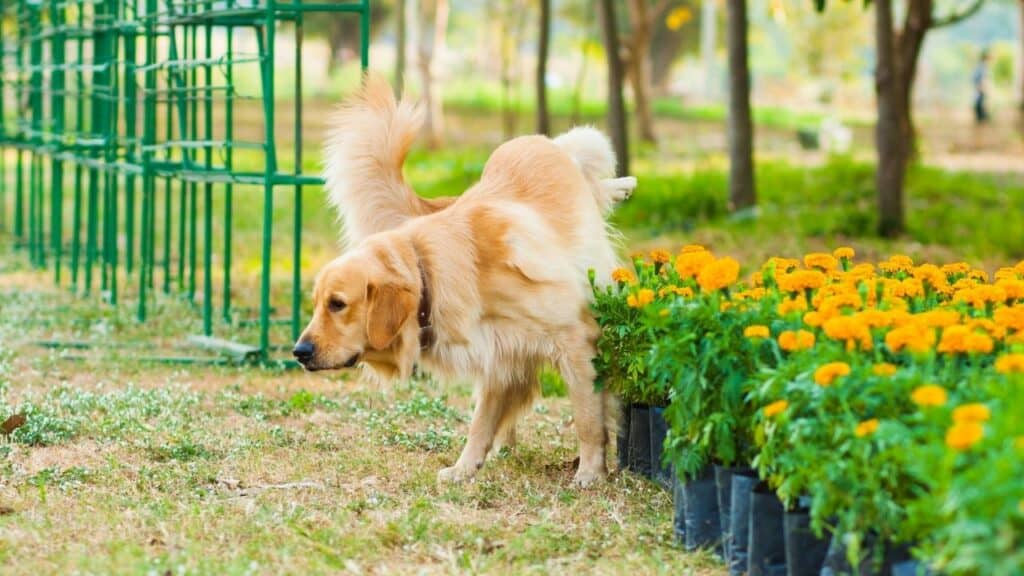
Veterinarians say it shouldn’t matter how long a dog can hold it when peeing.
Every 6 to 8 hours, they advise letting your dog outside.
3–4 times a day would be appropriate.
According to veterinarians, a dog shouldn’t have to hold for more than eight hours just because it can.
If your dog stops their pee longer, it could develop health problems.
If your dog has dark yellow pee, it is a sign of holding it too long.
Although he has the physical capacity to hold their pee for a long time, doing so puts him at risk for urinary tract infections and the formation of crystals and stones in the urinary tract.
Disruptions in behavior are another possible outcome of urinary incontinence.
Bladder Infection
Due to the bladder’s frequent draining, it may develop bacterial infections and mucous membrane lining irritation.
Urine retention cysts, cancer-free masses on the bladder wall that aren’t harmful but are nonetheless unappealing indicators of a bigger problem, can also result from it.
Liver Disease
The liver can be harmed by toxins released from backed-up urine, which will make it more difficult for your pet’s body to accomplish its task of eliminating waste.
Try to take your dog outside every few hours to relieve toxins from its bladder and maintain good health.
Incontinence
Some dogs may start developing urine incontinence when they cannot control their urination or have leakage while lying down or sleeping on one side due to the muscles that contain it weakening over time due to lack of use.
Hormonal Imbalances
Hormone levels may fall out of balance because the body has to work harder when toxins stay in the blood for an extended period.
This imbalance limits the release of eggs from the ovaries or interferes with other vital body processes.
Why Does My Dog Hold His Pee?
Your dog is likely trying to hold its pee if it doesn’t even try to go outside or ignores you when you call it.
There may be a reason your pet is anxious.
Many other symptoms of such anxiety include the inability to use the restroom in the presence of strangers.
They don’t want anything to happen again if they use the restroom at this time; the possibility that they have experienced some accidents is also pointed out.
Behavioral Remedies For When Your Pet Holds Its Urine
A walk will exhaust them and cause them to fall asleep.
Dogs will have no trouble doing the potty breaks after.
Make sure to compliment them on their cheerful demeanor.
Playing with your pet will tire it out, and it will be unable to hold its pee when it comes.
When you notice your dog wanting/needing to go inside their crate, take them for a leash walk around the house or neighborhood.
If they can’t go outside, take them on as many leashed walks around the house as possible.
As previously stated, this will tire them out and cause them to fall asleep, allowing them to empty their bladder more easily later.
How To Stop Dogs From Hold Their Pee?
While products are available to prevent your dog from keeping his poop, it is preferable to utilize a natural method to stop your dog from holding its pee.
Here are several options for action:
The first thing a dog owner has to do becomes aware of the warning signs so they can spot when their pet refuses to use the bathroom even if they should.
The easier it will be for the dog and the better it will respond to commands, the sooner you solve these problems.
Additionally, accidents could occur since it cannot contain the bladder indefinitely, making training difficult.
At least once during the day, take your pet for a stroll around the neighborhood.
You may also let them play indoors with their favorite toys, chews, and treats.
That will release their energy, preventing them from feeling the need to repress it.
Do Dogs Hold Their Pee When Stressed?

Dogs may hold their pee when stressed because the body is trying to retain water.
When your dog moves or sprints around, it stimulates its bladder and aids in releasing more urine; however, this response may be less than usual when they are nervous about anything.
Keep your pet calm at home for about an hour before letting them go outside if you can, especially if you suspect they are not urinating because of stress.
After doing that for a few hours and being patient with them to relieve stress, it’s time to visit the veterinarian to ensure their urinary tract isn’t physically damaged.
The Importance Of A Bathroom Routine
The dog’s pee is usually held for a long before it dries.
Most dogs can be left alone at home until it is too late.
If you force your dog’s bladder to stay still for an extended period, it may become sluggish and cause serious problems.
Peeing infrequently or with difficulty is a common symptom of a more significant problem.
Potty Training Issues
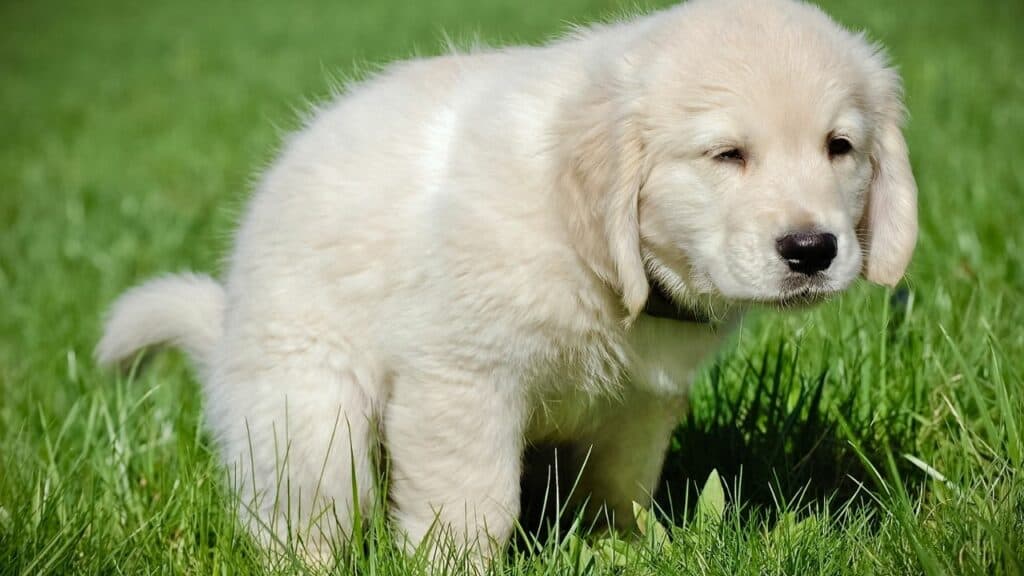
When your dogs regularly get into trouble at home, you may need to investigate the cause.
It is best to consult a vet immediately who will provide veterinary advice for a diagnosis.
Even if your dogs are in good health, they may exhibit behavioral issues.
One of the most common complaints from new puppy owners is potty training issues.
And if you have an older dog, these tips will also apply to him!
The good news is that potty training does not have to be as difficult as it may appear with a good plan and the assistance of a professional.
Most young puppies can be completely potty trained in a matter of weeks.
Different Types Of Peeing
So, you have come here to ask how long dog can hold their pee.
The above gives general numbers but to understand why your dog is peeing, and you need to understand what type of urination is occurring.
Excitement Peeing
Most of the time, excitement peeing is caused by a simple issue with maturity, anxiety, or personality.
Pets frequently have accidents due to excitement when their owners arrive home from work after a long day or when members of the owner’s family or friends knock on the door.
Your dog overcomes with excitement, and cannot maintain muscle control, resulting in a puddle left on the floor as excitement peeing.
To Get Attention
The desire for attention is a learned trait.
An adult dog can go without going for six to twelve hours.
You must therefore be aware of your dog’s past.
Has he ever urinated inside the house?
If so, this is not an attempt to attract attention.
You may unintentionally reward your dog’s behavior if they start abruptly peeing inside the home.
Publicity is similar to attention. The term “poor attention” is a misnomer.
As a result, if you have failed to play with your dog, he may begin to urinate on the floor.
Even screaming at him makes him pay attention.
Marking
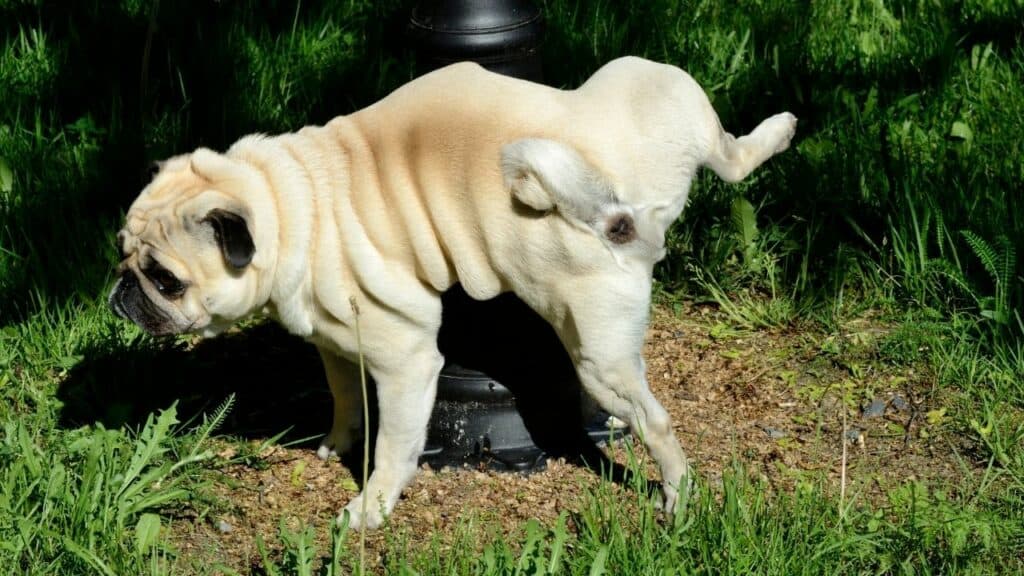
Marking is a specific behavior that both male dogs and, yes, even female dogs may mark, especially if they are unaltered.
When a dog marks, the aroma of their poop “marks” the thing, the location, or the unfortunate individual.
Dogs have extraordinarily keen senses of smell, so another dog’s urine is like a complicated fingerprint that contains a tone of information.
We can just make observations and continue to fill in the blanks because we are currently unable to comprehend everything transmitted by this scent fully.
When a dog marks, it’s not because it needs to urinate but because it wants to leave its scent behind.
As a result, individuals usually do not produce as much urine when they mark as they do when they urinate.
They typically only leave marks on brand-new items or in novel surroundings, especially when fresh-smelling dogs are nearby.
What To Do If You Are Not Home Enough?
Pet parents frequently wonder how long a dog can hold it because they worry they are not home often enough.
This is typical, so don’t be alarmed.
How to assist your dog when not at home is explained below.
Get A Dog Sitter/Walker
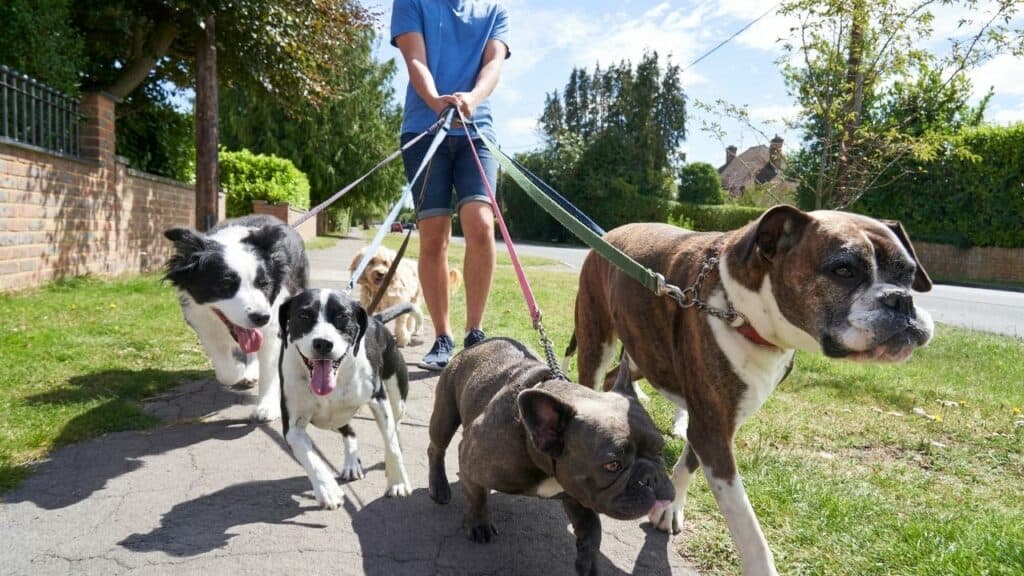
Employ someone to take your dog for a 20–40 minute walk.
Try to find a local walker on Next-Door.
Avoid Rover and Wag since few walkers have insurance.
This is a fantastic solution if your dog has trouble holding his bladder.
Try To Get Home At Lunch Time
This can be a choice if you reside nearby your place of employment.
To save money, some people combine this with hiring a walker.
Take Your Dog To Work With You
Find out if this is an option by asking your boss.
Not only would it benefit your dog, but your dog also serves as a stress reliever.
Ask A Neighbor / Family Member to Check In
That is a good option for someone who doesn’t spend much time away from home.
You could ask someone to check on your dog if you are caught in traffic or an emergency.
How To Potty Train Your Dog?
The second most prevalent reason people want to know how long a dog can hold its bladder is the house training of puppies or rescued dogs.
Take Your Puppy Outside Frequently
Every two hours at a minimum, preferably:
right after they wake up
before and after they play
after they consume food or drink
Pick A Bathroom Spot Outside
In addition to making frequent visits there with your (leashed) dog.
Use a cue word or phrase when your puppy is relieving themselves that you can later use before they go to remind them.
Only after they have rid themselves should you take them out for a longer stroll or fun and make regular trips there with your pet (on a leash).
Use a cue word or phrase when your puppy is relieving themselves that you can later use before they go to remind them.
After they’ve gone to the bathroom, and only then, take them out for a longer stroll or some fun.
Reward Your Puppy Every Time Peeing Outdoor
Treats or praise should be given immediately after they finish, not after they go back inside.
This step is crucial since the only way to teach your dog what to expect is to praise them for going outside.
Make sure they’re done before rewarding.
Often our puppies are sidetracked, so if you give them praise before they’ve finished, they can forget to do it until they come back inside.
Put Your Puppy On A Regular Feeding Schedule
A schedule dictates what goes into and what comes out of a dog.
Puppies may need to be fed twice or three times every day, depending on their age.
Your puppy will be more likely to go pee at regular intervals if you feed them at the exact times every day, making house training more straightforward for both of you.
Supervise Your Dog
If your dog is not trained yet to use the potty outside their crate, you should always keep an eye on them.
Active supervision is necessary.
You shouldn’t be occupied with anything else.
That means no cooking, playing on the phone, or watching television.
Dogs communicate when they need to go, which is why.
You ought to be able to recognize those indications.
Never yell at your dog because you can’t tell when they need to go potty.
Signs Your Dog Has To Pee
Sometimes, your dog already needs to pee but you can’t read his body language.
That is about to change.
Most dogs start displaying these indications when their bladder is around 3/4 full.
You must learn to recognize your dog’s signals.
These are common ones.
Walking in circles
Pawing at the door
Standing near the door
Whining
- Peeing on your bed
Coming to get your attention
Disappearing or hiding
Staring at you
Barking
Running between people
Returning to a previously soiled area
Sniffing the ground
Each dog is unique.
You should recall the most recent accident if you have difficulty figuring out your particular dog’s signal.
How did your dog behave just before defiled your home?
Write them down, then keep an eye out for those actions the following time.
Why Did My Dog Pee The Minute He Got Back In?
Are you still concerned that your puppy or pup urinated shortly after returning from the bathroom?
A dog cannot urinate when overstimulated, which is why this occurs.
The neurological system in our body turns off that area.
It’s called biology.
They unwind as soon as the dog returns, and the nerve system resumes the digestive system.
So dogs can use the restroom.
It’s too stimulating outside.
If a dog cannot relieve himself outside, putting him back in the crate is crucial.
Retry in 15 to 30 minutes.
My Dog Went Potty Now What?
Your dog can now go around and play without restriction.
Know the timetable of your dog.
You must monitor the water intake and time between toilet visits.
Your dog has 30 minutes of playtime if he urinates every 30 minutes before returning to the outside or kennel.
Balancing Life And Your Dog’s Needs
Life is all about balance; we are frequently told.
Health professionals will stress to you how crucial it is to keep a balanced diet to achieve optimal health.
Balancing your inner and outward selves is the secret to reducing worry, and tension, and leading a fulfilling life, according to psychologists specializing in eastern medicine.
Recognizing each dog for its unique individual and the distinction between physical, mental, and emotional energy is crucial for establishing that balance for our pets.
A dog may be more inclined to one of the different demands than the others since they require various outlets.
They can be, even if they are all undoubtedly connected.
What NOT To do
Daycare is a topic frequently among dog owners interested in learning how long their pet dogs can contain their pee.
Daycare, on the other hand, tends to make potty training more difficult rather than simpler.
Doggy Door
Unless you work from home, putting in a doggy door is not something I would recommend doing.
There are primarily two causes for this: broken fences and people who steal dogs are the two main issues.
Doggy Day Care
Dog daycare facilities are terrible for pet parents trying to teach their dogs to contain their bladders.
That is because the dogs can freely move around the room.
As a result, the dog learns that going potty indoors is acceptable and that holding their bladder is unnecessary.
Additionally, puppies and old dogs are not the best candidates for doggie daycare.
That is a result of inadequate rest periods.
Don’t Mix Puppy Pads With Crate Training.
Never mix puppy pads and crate training because crate training is different.
It is important to remember that puppy pee pads do not teach a dog to hold its urine.
As a result, you would be causing the dog to get confused.
That typically slows down the process of potty training.
Let Your Dog Run Free In The Yard When You Want Them To Potty
Keep in mind that being outside is very exciting.
You should limit your dog’s willingness to play as much as possible.
It is essential to keep playtime and potty time apart.
Before You Go…
Now you know the answer to the question, “How long can dogs hold their pee?'”.
If you want to learn more, read the following article too!

